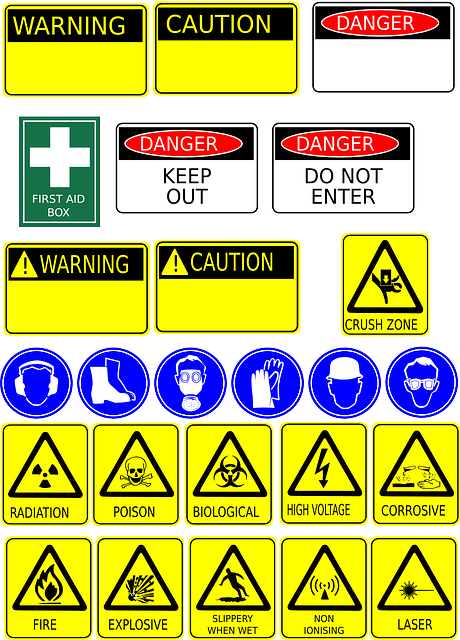Retailers face significant challenges from theft and fraud, with employees often being key players. Implementing robust background checks for retail employee integrity is crucial to prevent internal theft, fraud, and boost customer safety. These screenings verify identities, work history, and criminal records, enhancing industry compliance and public image. By fostering accountability and trust through vetted staff, retailers differentiate themselves in a competitive market while ensuring positive shopping experiences. Key terms: Retail employee screening, retail background verification, customer safety checks, retail industry compliance, retail staff credentials, retail theft prevention.
Ensuring customer safety in retail environments is paramount. In a world where security breaches and theft are prevalent, understanding the importance of thorough retail background checks cannot be overstated. This article delves into the critical role of employee screening in safeguarding customers, exploring key elements of effective background verification processes and best practices for implementation. From preventing retail theft to maintaining industry compliance, discover how robust background checks foster trust and enhance customer integrity in today’s dynamic retail landscape.
- Understanding the Importance of Retail Employee Background Checks
- The Impact of Unvetted Employees on Customer Safety
- Key Elements to Include in a Retail Background Verification Process
- Best Practices for Implementing Effective Retail Staff Screening
- Preventing Retail Theft: A Comprehensive Approach
- Maintaining Industry Compliance and Building Trust with Customers
Understanding the Importance of Retail Employee Background Checks

In the dynamic and often fast-paced retail environment, ensuring customer safety is paramount for maintaining a positive shopping experience. Background checks for retail employees are an integral component in achieving this goal. Thorough screening processes, including background verification, help establish the integrity of those interacting with customers directly. By implementing robust retail employee screening practices, businesses can mitigate risks associated with retail theft and other security breaches.
Retail industry compliance isn’t just about adherence to laws; it’s about fostering an environment where customers feel secure. Retail staff credentials play a crucial role in this regard. Background checks allow retailers to verify the legitimacy of job applicants, ensuring that only trustworthy individuals are entrusted with responsibilities involving customer interactions and handling of merchandise. This proactive approach not only prevents potential losses but also strengthens the retailer’s reputation for prioritizing customer safety.
The Impact of Unvetted Employees on Customer Safety

In the dynamic landscape of retail, where first impressions and customer satisfaction are paramount, the presence of unvetted employees can have significant implications for overall safety and security. Retail stores, bustling with activity and often dealing in high-value merchandise, are prime targets for theft and fraudulent activities. Unscrutinized hires might unintentionally facilitate these issues due to a lack of understanding of retail industry compliance standards or even worse, intentional involvement in criminal behavior. Background checks for retail employees, also known as retail background verification, are not just a best practice but an indispensable tool in ensuring customer safety and maintaining the integrity of the retail environment.
Retail staff credentials play a pivotal role in preventing retail theft and safeguarding both customers and business assets. Comprehensive screening processes that include criminal history checks, previous employment verification, and education and qualification reviews can uncover potential risks early on. By implementing robust retail employee screening methods, retailers can foster an environment where every staff member is accountable and committed to upholding the highest standards of customer safety. This, in turn, contributes to a positive shopping experience, bolstering customer trust and loyalty while ensuring compliance with industry regulations.
Key Elements to Include in a Retail Background Verification Process

When conducting background checks for retail employees, several key elements ensure comprehensive screening and maintain customer safety. First, retail employee screening should encompass a wide range of verifications. This includes checking employment history, verifying previous addresses, and confirming educational backgrounds to establish a robust foundation. Additionally, criminal background checks are imperative, focusing on local, state, and national levels to uncover any potential red flags related to retail theft prevention.
Beyond these basics, retail industry compliance requires delving into specific areas. Evaluating past employment within the retail sector can reveal patterns of behavior indicative of integrity or dishonesty. Examining social media profiles and online presence for inappropriate content that might reflect poorly on retail staff credentials is another critical step. Moreover, checking references from previous employers offers valuable insights into the candidate’s work ethic and reliability.
Best Practices for Implementing Effective Retail Staff Screening

Implementing robust background checks for retail employees is a best practice that goes beyond mere hiring; it’s about fostering integrity and customer safety within the retail industry. Retail businesses should incorporate comprehensive screening processes to verify the accuracy of staff credentials, encompassing criminal history, previous employment, and education claims. This includes leveraging advanced technology to cross-reference data and identify potential discrepancies.
Retail background verification should be a dynamic process, regularly updated to keep pace with legislative changes and evolving retail industry compliance standards. By adopting these practices, retailers can significantly reduce the risk of retail theft, ensure customer safety checks, and foster an environment where employees are held accountable for their actions, enhancing overall operational integrity.
Preventing Retail Theft: A Comprehensive Approach

Retail stores are vulnerable to various forms of theft, with employees playing a crucial role in either preventing or facilitating these incidents. Background checks for retail employee integrity are an essential component of any comprehensive security strategy aimed at enhancing customer safety and retail industry compliance. A thorough retail background verification process involves scrutinizing an applicant’s history to ensure their suitability and trustworthiness. This includes checking criminal records, previous employment, education, and other relevant credentials to identify potential red flags that might indicate a higher risk of unethical behavior.
By implementing robust retail staff screening procedures, retailers can mitigate the risk of internal theft, fraud, or abuse of customer information. Retail employee screening programs should not only focus on identifying past transgressions but also on understanding individual motivations and character traits. This multi-faceted approach to retail background checks enables employers to make informed decisions, fostering a culture of integrity among staff and enhancing customer safety in the process.
Maintaining Industry Compliance and Building Trust with Customers

Maintaining Industry Compliance and Building Trust with Customers
Retail businesses are held to high standards when it comes to customer safety and security. Implementing robust background checks for retail employees is not just a best practice, but a necessity in ensuring industry compliance. By thoroughly screening potential staff members, retailers can mitigate risks associated with theft, fraud, and other malicious activities that could compromise both the business and its customers. Retail background verification plays a crucial role in verifying an applicant’s identity, work history, and criminal record, providing retailers with valuable insights into their future employees’ integrity.
Building trust with customers is another significant advantage of rigorous retail employee screening processes. Customers feel safer knowing that their interactions are with credible staff members who have undergone comprehensive background checks. This enhanced trust can lead to improved customer satisfaction and loyalty, as well as fostering a positive image for the retailer. Moreover, by demonstrating a commitment to customer safety through visible security measures and transparent hiring practices, retailers can differentiate themselves in a competitive market, thereby attracting and retaining more customers.






